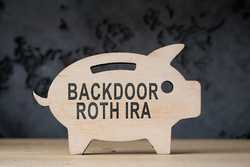Do You Need a Financial Advisor?

Our evaluations and opinions are not influenced by our advertising relationships, but we may earn a commission from our partners’ links. This content is created by TIME Stamped, under TIME’s direction and produced in accordance with TIME’s editorial guidelines and overseen by TIME’s editorial staff. Learn more about it.
When you’re getting a handle on your finances, you’ve probably come across some perplexing questions.Whether they involve tax, estate, or retirement planning, paying off debt, saving for your children’s higher education, or some other financial task, you might be just a little bit at sea.
This is where a financial advisor can be helpful. Still, only 35% of Americans work with one. So why should you be one of them?
Find the right financial advisor with WiserAdvisor
Find the right financial advisor with WiserAdvisor
Financial advisors have the credentials, knowledge, and experience to help you when you aren’t as well equipped to help yourself. "When we get sick we go to the doctor. When we get into legal trouble we hire a lawyer. Yet, somehow people believe that they should be able to navigate the ever increasingly perilous financial waters without professional help," says Robert R. Johnson, PhD, CFA, CAIA, professor of finance at Heider College of Business, Creighton University. Let’s look at some instances in which a financial advisor can be useful.
Financial advisors often have credentials for a specific area of expertise. These can include:
These credentials make them professionally certified to work in such areas as investment advising, retirement planning, tax advising, wealth management, estate planning, insurance advising, debt counseling, and more.
“Using their expertise, advisors can provide an objective perspective to create a financial plan and play the role of an accountability partner to help motivate you to achieve your goals,” says Samuel Deane, CFP, registered Financial Industry Regulatory Authority (FINRA) investment adviser, wealth manager, and founder of Deane Wealth Management. “Knowing that you have a professional to lean on translates to peace of mind and saves you time as you work toward your financial goals.”
Financial planners are one type of financial advisor. However, anyone can call themselves one, so it’s always best to hire someone with the professional designation of CFP. A planner can discuss your specific financial goals with the whole picture of your finances in mind. If they lack additional professional credentials for some of the services you need, they will likely be able to recommend someone who has them.
Working with a financial planner can “give you a different perspective on your position with your finances,” says Nadia C. Vanderhall, CFP and founder of the Bands and Brands Strategy Group of Charlotte, N.C. “The right one would not only advise you on how to align with your goals but also give you different ways to look at something that you might've been puzzled about for years.[They] will look at not only what your pain points are but also your whole personal finance profile.”
The financial plan may include advice on:
Financial planners can help you strategize moves you need to make to create a financial plan to meet your needs, both now and in the future.
Retirement will come at you faster than you can imagine. Implementing a plan, and doing it early, is essential for your financial future. A financial advisor who specializes in retirement planning can help you prioritize your financial goals, including determining how much you’ll need to withdraw in retirement, and find ways to fund investments that meet them.
If you hire an advisor with the right credentials, they can also help manage your retirement investments. This includes choosing and purchasing them, receiving and interpreting investment reports, and periodically rebalancing your portfolio.
Whether you’re educated in the field of personal finance or not, it’s hard to keep up with all the laws, strategies, and tools that can help with your finances. “If you aren’t confident that you completely understand everything that is affecting you, it may make more sense to hire someone with the expertise to help you.” says Brandon Renfro, a CFP and founder of Belonging Wealth Management located in Longview, Texas. “Having someone in your corner can be valuable, if even just to prevent you from making mistakes.”
Even if you are knowledgeable about money, you may want to have someone else be in charge of keeping up with your finances and how changes in the economy and tax laws will affect them.
According to Renfro,, “Some people hire an advisor not because they can’t do it themselves or think they need an advisor, but because they’d rather focus their attention on other things and aren’t terribly interested in doing it all themselves.”
Major life events create changes in your finances that can be hard to manage on your own. In what ways are they affected by the birth of a child? What about a second marriage? An inherited estate?
You can find a financial advisor who specializes in the help you need. For example, an accountant can teach you the tax consequences of your inheritance, and an investment advisor can help you plan what to do with the money.
If you’ve been investing on your own, you could be missing out on returns. The consensus of five 2019 industry studies cited by Fidelity was that professional financial advice boosted portfolio returns between 1.5% and 4% over the long term.
”Having a financial advisor can be an extreme value-add, especially when you have a specific financial goal or issue,” says Deane. Vanderhall points out that advisors are invested in clients hitting their goals: “They hold not only you, but your accounts accountable.”
A good financial advisor is more than the money. They take your individual situation into account and make sound recommendations to benefit you for years to come.
They’re also there to remind you of your financial plan and keep you on the right path. When there’s turbulence in the market or turmoil in your personal life, they can prevent you from making impetuous mistakes.
“One of the most important parts of working with a financial advisor is that it allows you to understand all layers of your money,” says Vanderhall. “When it comes to your finances, two parts of the formula are your mannerisms and your mindset. Even if the advisor doesn't offer this element within your services directly, they do so in advising and educating. This reason alone will add a different type of compound interest to not only where you are financially now, but how you structure your finances for later.”
It’s helpful to have someone you can call when tough financial questions come your way. Whether it’s saving for retirement, planning for a new baby, financing a college education, or creating strategies to help protect your wealth, a trusted financial advisor can help guide you through rough waters. Look for one who offers the services you need, charges fairly, and works well with your personality. It could become a valuable relationship in your life.
This depends on your comfort level with managing every aspect of your finances. It’s not common for a layperson to have the knowledge and discipline to do that on their own. Those who do may not have the time or the inclination. A financial advisor could provide invaluable support and guidance.
According to five 2019 industry surveys cited by Fidelity,, professional advice can add between 1.5% and 4% to your investment returns over the long term. Why shouldn’t an average person share in that? It certainly sounds cost effective.
Some questions to ask include:
It’s also important to ask how they get paid. Is it by commission? A retainer fee? A percentage of your assets under management? An hourly rate? An important thing to find out is whether or not they are held to a fiduciary standard (all CFPs, for example, are).
A fiduciary must provide recommendations that are in their clients’ best interests. Someone who is not a fiduciary may only be held to a standard of suitability. This means that if an investment is suitable but not the best, they can still recommend it (and receive compensation for doing so from the seller).
The best financial advisor for you is one that is both competent and can meet your needs. Look for credentials, such as the CFP designation, which can be checked with the CFP Board. Take a look at the performance of their financial products and investment strategies as well.
The information presented here is created by TIME Stamped and overseen by TIME editorial staff. To learn more, see our About Us page.




